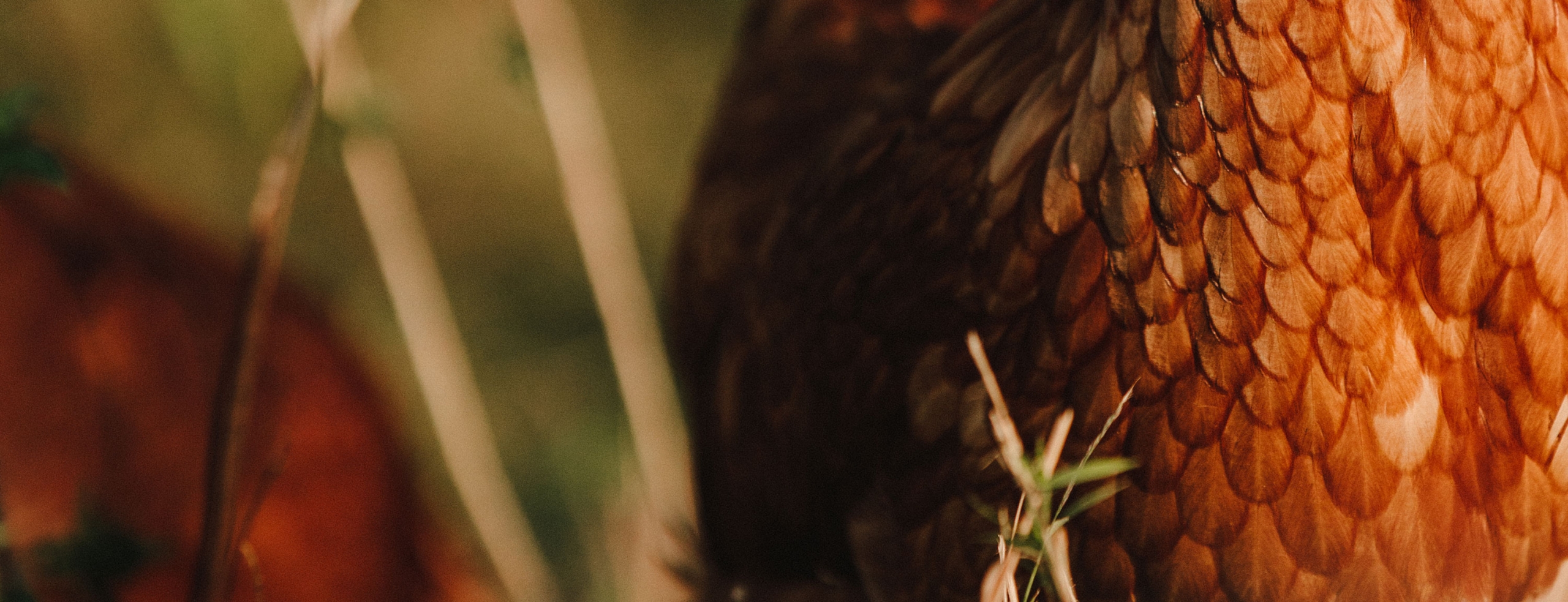December 23, 2024
While none of the 375+ family farms that work within our decentralized supplier base have positive cases of Avian Influenza (AI) right now, we’ve seen a typical seasonal spike in AI cases in states where we operate. A majority of our farms are temporarily housing their birds in barns, in line with the guidance received from state regulators and our network of animal welfare experts.
As a reminder, Avian Influenza (AI) spreads when migratory waterfowl pass over farm areas and leave droppings containing the virus. AI cases typically spike in the spring and fall during wild bird migration periods.
Our Farm Support team is committed to supporting our farmers by working closely with regulatory agencies and animal welfare experts to track cases, use enhanced biosecurity measures, and provide the resources they need to keep their flocks healthy. While hens are in the barn, our farmers continue to prioritize animal welfare, which includes measures like carefully managing barn ventilation and providing high-quality foraging materials and enrichments.
Pasture-raised eggs are laid by hens that can spend their days outdoors roaming the pastures as they please. Our pasture-raised hens have access to a minimum of 108 square feet per bird along with fresh air and sunshine year-round. These temporarily housed flocks will return to their standard outdoor lifestyle as soon as it is safe to do so.
We are dedicated to staying transparent on the status of our farms. We regularly update the percentage of farms that are keeping their birds inside, which you can find here, and will continue to update this page with any significant developments.
December 13, 2023
We were recently notified that a farm producing Vital Farms eggs was impacted by Avian Influenza (AI). Our team is focused right now on supporting the impacted farmer and helping get their family farm back up and running. We’re working with them on all of the federally-mandated protocols and drawing on the expertise in our network of veterinary experts, farm support crew and regulatory officials.
We work with over 300 farms to produce Vital Farms eggs. Our decentralized supplier base means that we don’t expect an individual case to create any significant disruption to our egg supply or our overall business. The positive case on this single farm represents less than 0.5% of our egg supply.
As a reminder, Avian Influenza occurs when migratory waterfowl pass over farm areas and leave droppings containing the virus. “Bird flu” does not normally infect humans, but it is a serious issue for chickens and typically spikes in the spring and fall.
We will continue to communicate and share information about how AI impacts all of our stakeholders, and we’ll post any major developments on this page as the situation evolves.
November 3, 2023
None of the 300+ family farms that Vital Farms works within our decentralized supplier base have positive cases of Avian Influenza (AI) right now, but we’ve seen a seasonal spike in AI cases in states where we operate. A number of our farms are housing their birds in the barns, in line with the guidance that we get from state regulators.
As a reminder, Avian Influenza (AI) spreads when migratory waterfowl pass over farm areas and leave droppings containing the virus. AI cases typically happen in the spring and fall when wild birds migrate.
Our Farm Support team works closely with regulatory agencies, animal welfare experts and farmers to track cases and provide support. While hens are inside the barn, our farmers continue to prioritize animal welfare, which includes carefully managing barn ventilation and providing high-quality foraging materials and enrichments.
We are dedicated to staying transparent on the status of our farms. We regularly update the percentage of farms that are keeping their birds inside, which you can find here and we will continue to update this page with any significant developments.
November 21, 2022
On November 19th, 2022, we were notified that a farm producing Vital Farms eggs was impacted by Avian Influenza (AI). This is the first time one of our farms has had a confirmed positive case of AI.
Avian Influenza occurs when migratory waterfowl pass over farm areas and leave droppings containing the virus. “Bird flu” does not normally infect humans, and the risk of transmission by consuming shell eggs is low, but it is a serious issue for chickens that typically spikes in the spring and fall during migration periods. Since early 2022, more than 49 million birds in 46 states have either died as a result of bird flu or have been culled (euthanized) because they were exposed to infected birds.
We’re working directly with the one impacted farm in Vital Farms’ network to follow all of the state-mandated protocols and we’re committed to supporting them through this incredibly difficult time. Because we source our eggs from over 300 family farms and this is an isolated incident on one farm, there’s no anticipated material impact to our overall supply.
We continue to track the issue closely. In addition to the work we’re doing with this single impacted farm, we’re working with our farmers, veterinary experts, state officials, and auditors to keep our girls as safe as possible. As you’d expect from us, we will be as transparent and proactive as possible about how this impacts all of our stakeholders, and we’ll post any major developments on this page as the situation evolves.
March 28, 2022
We want to update our stakeholders on Avian Influenza, a virus that affects chickens and has been recently reported in the UK and U.S. For background, avian influenza occurs when migratory waterfowl pass over farm areas and leave droppings containing the virus. First and foremost, we’re thinking of any farmers and animals that have been affected by this virus.
Our Farm Support crew has been following this virus since cases were first reported in Europe several months ago. We’ve been working with our farmers, veterinary partners, and government health officials to protect the health of our girls. We also sought guidance from our animal welfare auditors including Certified Humane® and Oregon Tilth to ensure any approach we take has their approval as it relates to animal welfare standards.
At this time, our veterinary partners, certifying bodies, and state health officials have strongly recommended that we keep our hens indoors, and we are following this guidance. We’ve also implemented heightened biosecurity measures across our network of 275 farms. Because avian influenza is spread by wild migratory fowl, hens with outdoor access could be particularly vulnerable. We shared this decision with our auditors who agree with this approach. While the hens are inside the barn, our farmers continue to prioritize animal welfare which includes carefully managing barn ventilation and providing high-quality foraging materials and enrichments.
While we hope the girls will be out on pasture again soon, we believe this is the best approach to keep them as safe as possible.




